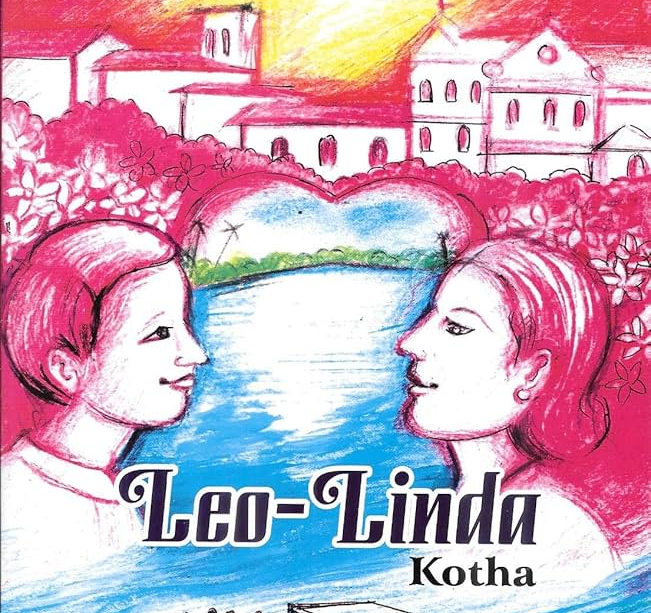To keep our languages, scripts and dialects alive, we perhaps need to think in terms of wider goals

These days, Romi Konkani is in the news. The campaign for it is up and on the go. Will it make it? Will the blatant denial of linguistic and cultural rights, and blunt statements from politicians like Chief Minister Pramod Sawant, hold sway? Only time will tell.
Put very briefly, every dialect and every script has its right to exist. It should not be discriminated against -- our Constitution says that squarely.
Article 29(1) of the Indian Constitution unequivocally lays down: "Any section of the citizens residing in the territory of India or any part thereof having a distinct language, script or culture of its own shall have the right to conserve the same."
Yet, the Goa Official Language Act so blatantly discriminates. It does so with that last-minute one-liner which privileges Devanagari Konkani. It reads: "'Konkani language' means Konkani language in Devanagari script." This is not definition; this is discrimination.
How those who worked out this mischief got away with it quite baffles the mind. Besides, it's equally surprising that this move managed to stay largely unchallenged so far. Except, that is, for a case filed initially by Adv Aires Rodrigues, for stage artiste Wilmix Mazarello's Romi Lipi Action Front, around a decade ago, in 2013.
Let's leave that aside, though. An even more serious issue here is that, if Roman script Konkani (or, any language or dialect or script) is to get ahead, there are a lot many things that need to be done. Fighting discrimination, and getting a level official playing field, is only part of the game.
If we don't pay attention here, we will be like the Modi script. In the 1930s, Marathi gave up the Modi script in favour of Devanagari. Today, people have woken up to realise that there's hardly anyone left who can read Modi. Special training is now being given to create a small base of people who are able to decipher the Modi script!
Long list (sub head)
To build a language, safeguard it from loosing out to bigger tongues, and take it ahead, a lot many things need to be done. If everyone interests lends a hand, the task might not be difficult. This list could grow to being 101 items long, but for the sake of brevity, let's point to only a few.
Romi Konkani needs its own literature. While it did well on this score in the past, a lot more needs to be done now. The other day, during an online discussion, it was my publisher-colleague Leonard Fernandes who pointed out that there was hardly any non-fiction being published in Romi Konkani. (This is true, to a slightly lesser degree, of Devanagari Konkani, or even Marathi in Goa.) If this is so, how does local knowledge get produced in these languages? We are making these languages redundant.
Romi Konkani needs its own educational curriculum (thanks to decades of being educationally sidelined through official neglect after the OLA, 1987). It needs many more language classes, not just the few that are happening. Romi needs a lot more content being produced digitally (there is some happening, especially in entertainment and music, but where are the Romi Konkani ebooks?)
Romi's visibility could surely gain from many, many more social media campaigns. Cultural festivals could showcase its contribution to the Konkani world -- and that has not been insignificant. Workshops and seminars, plus claiming space for Romi Konkani in academia, are all ultra important, unfinished tasks.
Radio programmes could give Romi Konkani (and the dialects associated with it, like Bardezi and Saxtti) a boost. While the language has to literally fight for space on Akashvani, online radio programmes have started from Toronto (Canada), Southampton (UK) and Auckland (NZ).
Song, music and tiatr is definitely happening in this space, but is it being archived and studied? Poetry, drama and theatre needs a boost in Romi too. Online fora offer a fascinating space to build Romi. Much is waiting to be done in the world of Romi libraries too.
Other possibilities include promoting bi-lingual (with Romi) signs, building translation services, and promoting research in topics related to this world. Contests and competitions have been happening, but mostly in the world of music; this needs to spread to other fields too.
Romi can be more active in creating its own literary awards. Even is small and tokenistic, the thought is more important than the money. Then, there are other possibilities too; how could this script be used to popularise itself among, say, tourists (especially the many who are not familiar with Hindi)?
Historical documentation, partnerships together with like-minded NGOs, documenting the history of Romi writing and publishing (partly being done) could all add up. So could promoting popular cookbooks in the Romi script, collecting folk tales, and publishing children's books.
If more Konkani films were subtitled in the Romi script itself, that could become even a language learning tool too. Besides, why should the language lag behind in ebooks and audio books? Partnerships with the media, even in terms of building Romi sections to English-language newspapers, could indeed help.
So much could be done. But the volunteers are few. Besides the idea-generation process hasn't happened as one would have expected.
Nevertheless, it's better late than never. Steps along these paths could help increase the visibility and use of Roman script Konkani, ensuring its preservation and growth in the cultural and social fabric of Goa.